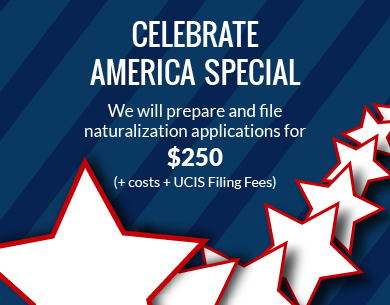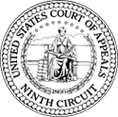Call for a free consultation: 818.714.2226
Relief For Abused Spouses Under VAWA
David Sturman
If you are or were married to a permanent resident of the U.S. or to a U.S. citizen and your spouse physically or mentally abused you, you may be able to obtain your lawful permanent residence in the U.S. even without the petition of your spouse. VAWA is the answer for thousands of victims of abuse.
VAWA is the acronym for the Violence Against Women Act, which was passed by Congress in 1994. Among other things, VAWA created special provisions to protect victims of abuse who are not citizens of the United States. In many cases VAWA allows certain victims of abuse who are not citizens to obtain lawful status without having to rely on their abuser to petition.
Normally, if you are a spouse, child or parent of a US citizen (USC) or a spouse or child of a legal permanent resident (LPR) and you want to obtain lawful permanent resident status (commonly referred to as having a “green card”), the USC or LPR has to file a petition with the United States Citizenship and Immigration Service (USCIS). VAWA does away with the requirement of a spouse petition.
Also, if your marriage is less than two years old when you obtain your LPR status, you would normally get what is called “conditional permanent residence,” (commonly known as a “conditional green card”). Your spouse would then normally need to file a joint petition with you to remove the “condition” so that you can obtain full lawful permanent residence before the second anniversary of your permanent residence.
However, under VAWA certain noncitizen victims of abuse can get legal status on their own without involving the abuser. This is the beauty of VAWA.
How to qualify:
Abused spouses may file a self petition under VAWA. A self-petition is a way to apply for lawful status in the US on your own by submitting an application to the USCIS requesting lawful status on your own. The following persons can self petition under VAWA:
- Abused spouses of a USC or LPR, and the abused spouse’s children if they are under 21 years old and unmarried (the children would be included in the spouse’s application as “derivatives“);
- Non-abused spouses of a USC or LPR if the USC or LPR spouse has abused your unmarried and under 21 child. The non-abused spouse’s children who are under 21 years old and unmarried may also be eligible (the children would be included in the spouse’s application as derivatives);
- Abused children (under 21 years old and unmarried) of a USC or LPR, and their children (under 21 years old and unmarried) as derivatives.
- Abused parents of a USC (not LPR) son or daughter (son/daughter must be over 21 years old).
In addition to meeting the abusive relationship requirement you must meet the following:
- Marriage to a USC or LPR: You must meet only one of the following:
- be married to a USC/LPR (including common-law marriage);
- your USC spouse (not LPR) died within the past 2 years;
- your USC/LPR spouse lost his/her citizenship or residency within the past two years related to an incident of domestic violence;
- you believed that you married a USC/LPR and a marriage ceremony was performed but you later found out that your marriage was not valid because your spouse was committing bigamy (s/he was already married when s/he “married” you); or
- you were divorced from your USC/LPR spouse within the past two years.
- The marriage was a good faith marriage:
- Battery or extreme cruelty: During your marriage, your USC/LPR spouse must have battered (physically abused) you or your child or subjected you or your child to “extreme cruelty. Including mental abuse, name calling, threats or humiliation.
- You must have lived with the abuser at some point ; and
- You are a person of “good moral character.”
Proof Required:
Although the best evidence of abuse may be a police report, arrest or conviction of your spouse for abuse, or medical records showing your injuries, these are not the only accepted evidence. VAWA is meant to be liberally administered which means you may qualify based solely on your own affidavit, or affidavits of witnesses or professionals such as your psychologist, mental health worker, priest or relative.
What Happens After Filing:
When a self-petition is accepted, the US Citizenship and Immigration Services (USCIS) sends a receipt to the address given on your petition. If the USCIS believes that you would meet all of the requirements if all of the information in your application were true, it will issue a “notice of prima facie case.” This notice is a letter that may allow you to qualify for certain public benefits, but it is not a final approval notice. If the applicant establishes that s/he is eligible for self-petitioning under VAWA, the USCIS will grant the petition and issue an approval notice. All approved self-petitioners are eligible for work authorization.
Depending on each case, once your self-petition is approved, you may be able to apply for some of the following things:
- Deferred action: This means that Immigration will not try to deport you.
- Work authorization: This means permission to work legally in the country – it is often called a “work permit.”**
- Legal permanent residence status: Greencard.
Little Known Facts About VAWA:
- You don’t have to have legally entered the U.S. Even persons who entered without a visa can qualify.
- 2. Persons who have been ordered deported already may be able to reopen their cases.
- VAWA can stop your deportation.
- There is no filing fee-it’s free.
- Men can qualify as well.
We have filed many abused spouse petitions under VAWA and our success rate is very high. We understand the plight and fear of abused spouses and we are sympathetic, helpful and the process is entirely confidential.









